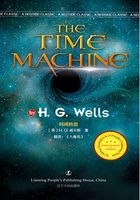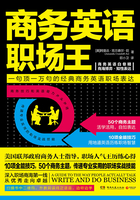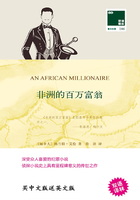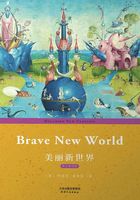'As I stood there musing over this too perfect triumph of man, the full moon, yellow and gibbous, came up out of an overflow of silver light in the north-east. The bright little figures ceased to move about below, a noiseless owl flitted by, and I shivered with the chill of the night. I determined to descend and find where I could sleep.
'I looked for the building I knew. Then my eye travelled along to the figure of the White Sphinx upon the pedestal of bronze, growing distinct as the light of the rising moon grew brighter. I could see the silver birch against it. There was the tangle of rhododendron bushes, black in the pale light, and there was the little lawn. I looked at the lawn again. A queer doubt chilled my complacency. "No," said I stoutly to myself, "that was not the lawn."
'But it?was?the lawn. For the white leprous face of the sphinx was towards it. Can you imagine what I felt as this conviction came home to me? But you cannot. The Time Machine was gone!
'At once, like a lash across the face, came the possibility of losing my own age, of being left helpless in this strange new world. The bare thought of it was an actual physical sensation. I could feel it grip me at the throat and stop my breathing. In another moment I was in a passion of fear and running with great leaping strides down the slope. Once I fell headlong and cut my face; I lost no time in stanching the blood, but jumped up and ran on, with a warm trickle down my cheek and chin. All the time I ran I was saying to myself: "They have moved it a little, pushed it under the bushes out of the way." Nevertheless, I ran with all my might. All the time, with the certainty that sometimes comes with excessive dread, I knew that such assurance was folly, knew instinctively that the machine was removed out of my reach. My breath came with pain. I suppose I covered the whole distance from the hill crest to the little lawn, two miles perhaps, in ten minutes. And I am not a young man. I cursed aloud, as I ran, at my confident folly in leaving the machine, wasting good breath thereby. I cried aloud, and none answered. Not a creature seemed to be stirring in that moonlit world.
'When I reached the lawn my worst fears were realized. Not a trace of the thing was to be seen. I felt faint and cold when I faced the empty space among the black tangle of bushes. I ran round it furiously, as if the thing might be hidden in a corner, and then stopped abruptly, with my hands clutching my hair. Above me towered the sphinx, upon the bronze pedestal, white, shining, leprous, in the light of the rising moon. It seemed to smile in mockery of my dismay.
'I might have consoled myself by imagining the little people had put the mechanism in some shelter for me, had I not felt assured of their physical and intellectual inadequacy. That is what dismayed me: the sense of some hitherto unsuspected power, through whose intervention my invention had vanished. Yet, for one thing I felt assured: unless some other age had produced its exact duplicate, the machine could not have moved in time. The attachment of the levers-I will show you the method later-prevented any one from tampering with it in that way when they were removed. It had moved, and was hid, only in space. But then, where could it be?
'I think I must have had a kind of frenzy. I remember running violently in and out among the moonlit bushes all round the sphinx, and startling some white animal that, in the dim light, I took for a small deer. I remember, too, late that night, beating the bushes with my clenched fist until my knuckles were gashed and bleeding from the broken twigs. Then, sobbing and raving in my anguish of mind, I went down to the great building of stone. The big hall was dark, silent, and deserted. I slipped on the uneven floor, and fell over one of the malachite tables, almost breaking my shin. I lit a match and went on past the dusty curtains, of which I have told you.
'There I found a second great hall covered with cushions, upon which, perhaps, a score or so of the little people were sleeping. I have no doubt they found my second appearance strange enough, coming suddenly out of the quiet darkness with inarticulate noises and the splutter and flare of a match. For they had forgotten about matches. "Where is my Time Machine?" I began, bawling like an angry child, laying hands upon them and shaking them up together. It must have been very queer to them. Some laughed, most of them looked sorely frightened. When I saw them standing round me, it came into my head that I was doing as foolish a thing as it was possible for me to do under the circumstances, in trying to revive the sensation of fear. For, reasoning from their daylight behaviour, I thought that fear must be forgotten.
'Abruptly, I dashed down the match, and, knocking one of the people over in my course, went blundering across the big dining-hall again, out under the moonlight. I heard cries of terror and their little feet running and stumbling this way and that. I do not remember all I did as the moon crept up the sky. I suppose it was the unexpected nature of my loss that maddened me. I felt hopelessly cut off from my own kind-a strange animal in an unknown world. I must have raved to and fro, screaming and crying upon God and Fate. I have a memory of horrible fatigue, as the long night of despair wore away; of looking in this impossible place and that; of groping among moon-lit ruins and touching strange creatures in the black shadows; at last, of lying on the ground near the sphinx and weeping with absolute wretchedness. I had nothing left but misery. Then I slept, and when I woke again it was full day, and a couple of sparrows were hopping round me on the turf within reach of my arm.
'I sat up in the freshness of the morning, trying to remember how I had got there, and why I had such a profound sense of desertion and despair. Then things came clear in my mind. With the plain, reasonable daylight, I could look my circumstances fairly in the face. I saw the wild folly of my frenzy overnight, and I could reason with myself. "Suppose the worst?" I said. "Suppose the machine altogether lost-perhaps destroyed? It behoves me to be calm and patient, to learn the way of the people, to get a clear idea of the method of my loss, and the means of getting materials and tools; so that in the end, perhaps, I may make another." That would be my only hope, perhaps, but better than despair. And, after all, it was a beautiful and curious world.
'But probably, the machine had only been taken away. Still, I must be calm and patient, find its hiding-place, and recover it by force or cunning. And with that I scrambled to my feet and looked about me, wondering where I could bathe. I felt weary, stiff, and travel-soiled. The freshness of the morning made me desire an equal freshness. I had exhausted my emotion. Indeed, as I went about my business, I found myself wondering at my intense excitement overnight. I made a careful examination of the ground about the little lawn. I wasted some time in futile questionings, conveyed, as well as I was able, to such of the little people as came by. They all failed to understand my gestures; some were simply stolid, some thought it was a jest and laughed at me. I had the hardest task in the world to keep my hands off their pretty laughing faces. It was a foolish impulse, but the devil begotten of fear and blind anger was ill curbed and still eager to take advantage of my perplexity. The turf gave better counsel. I found a groove ripped in it, about midway between the pedestal of the sphinx and the marks of my feet where, on arrival, I had struggled with the overturned machine. There were other signs of removal about, with queer narrow footprints like those I could imagine made by a sloth. This directed my closer attention to the pedestal. It was, as I think I have said, of bronze. It was not a mere block, but highly decorated with deep framed panels on either side. I went and rapped at these. The pedestal was hollow. Examining the panels with care I found them discontinuous with the frames. There were no handles or keyholes, but possibly the panels, if they were doors, as I supposed, opened from within. One thing was clear enough to my mind. It took no very great mental effort to infer that my Time Machine was inside that pedestal. But how it got there was a different problem.
'I saw the heads of two orange-clad people coming through the bushes and under some blossom-covered apple-trees towards me. I turned smiling to them and beckoned them to me. They came, and then, pointing to the bronze pedestal, I tried to intimate my wish to open it. But at my first gesture towards this they behaved very oddly. I don't know how to convey their expression to you. Suppose you were to use a grossly improper gesture to a delicate-minded woman-it is how she would look. They went off as if they had received the last possible insult. I tried a sweet-looking little chap in white next, with exactly the same result. Somehow, his manner made me feel ashamed of myself. But, as you know, I wanted the Time Machine, and I tried him once more. As he turned off, like the others, my temper got the better of me. In three strides I was after him, had him by the loose part of his robe round the neck, and began dragging him towards the sphinx. Then I saw the horror and repugnance of his face, and all of a sudden I let him go.
'But I was not beaten yet. I banged with my fist at the bronze panels. I thought I heard something stir inside-to be explicit, I thought I heard a sound like a chuckle-but I must have been mistaken. Then I got a big pebble from the river, and came and hammered till I had flattened a coil in the decorations, and the verdigris came off in powdery flakes. The delicate little people must have heard me hammering in gusty outbreaks a mile away on either hand, but nothing came of it. I saw a crowd of them upon the slopes, looking furtively at me. At last, hot and tired, I sat down to watch the place. But I was too restless to watch long; I am too Occidental for a long vigil. I could work at a problem for years, but to wait inactive for twenty-four hours-that is another matter.
'I got up after a time, and began walking aimlessly through the bushes towards the hill again. "Patience," said I to myself. "If you want your machine again you must leave that sphinx alone. If they mean to take your machine away, it's little good your wrecking their bronze panels, and if they don't, you will get it back as soon as you can ask for it. To sit among all those unknown things before a puzzle like that is hopeless. That way lies monomania. Face this world. Learn its ways, watch it, be careful of too hasty guesses at its meaning. In the end you will find clues to it all." Then suddenly the humour of the situation came into my mind: the thought of the years I had spent in study and toil to get into the future age, and now my passion of anxiety to get out of it. I had made myself the most complicated and the most hopeless trap that ever a man devised. Although it was at my own expense, I could not help myself. I laughed aloud.
'Going through the big palace, it seemed to me that the little people avoided me. It may have been my fancy, or it may have had something to do with my hammering at the gates of bronze. Yet I felt tolerably sure of the avoidance. I was careful, however, to show no concern and to abstain from any pursuit of them, and in the course of a day or two things got back to the old footing. I made what progress I could in the language, and in addition I pushed my explorations here and there. Either I missed some subtle point or their language was excessively simple-almost exclusively composed of concrete substantives and verbs. There seemed to be few, if any, abstract terms, or little use of figurative language. Their sentences were usually simple and of two words, and I failed to convey or understand any but the simplest propositions. I determined to put the thought of my Time Machine and the mystery of the bronze doors under the sphinx as much as possible in a corner of memory, until my growing knowledge would lead me back to them in a natural way. Yet a certain feeling, you may understand, tethered me in a circle of a few miles round the point of my arrival.
'So far as I could see, all the world displayed the same exuberant richness as the Thames valley. From every hill I climbed I saw the same abundance of splendid buildings, endlessly varied in material and style, the same clustering thickets of evergreens, the same blossom-laden trees and tree-ferns. Here and there water shone like silver, and beyond, the land rose into blue undulating hills, and so faded into the serenity of the sky. A peculiar feature, which presently attracted my attention, was the presence of certain circular wells, several, as it seemed to me, of a very great depth. One lay by the path up the hill, which I had followed during my first walk. Like the others, it was rimmed with bronze, curiously wrought, and protected by a little cupola from the rain. Sitting by the side of these wells, and peering down into the shafted darkness, I could see no gleam of water, nor could I start any reflection with a lighted match. But in all of them I heard a certain sound: a thud-thud-thud, like the beating of some big engine; and I discovered, from the flaring of my matches, that a steady current of air set down the shafts. Further, I threw a scrap of paper into the throat of one, and, instead of fluttering slowly down, it was at once sucked swiftly out of sight.
'After a time, too, I came to connect these wells with tall towers standing here and there upon the slopes; for above them there was often just such a flicker in the air as one sees on a hot day above a sun-scorched beach. Putting things together, I reached a strong suggestion of an extensive system of subterranean ventilation, whose true import it was difficult to imagine. I was at first inclined to associate it with the sanitary apparatus of these people. It was an obvious conclusion, but it was absolutely wrong.
'And here I must admit that I learned very little of drains and bells and modes of conveyance, and the like conveniences, during my time in this real future. In some of these visions of Utopias and coming times which I have read, there is a vast amount of detail about building, and social arrangements, and so forth. But while such details are easy enough to obtain when the whole world is contained in one's imagination, they are altogether inaccessible to a real traveller amid such realities as I found here. Conceive the tale of London which a negro, fresh from Central Africa, would take back to his tribe! What would he know of railway companies, of social movements, of telephone and telegraph wires, of the Parcels Delivery Company, and postal orders and the like? Yet we, at least, should be willing enough to explain these things to him! And even of what he knew, how much could he make his untravelled friend either apprehend or believe? Then, think how narrow the gap between a negro and a white man of our own times, and how wide the interval between myself and these of the Golden Age! I was sensible of much which was unseen, and which contributed to my comfort; but save for a general impression of automatic organization, I fear I can convey very little of the difference to your mind.
'In the matter of sepulture, for instance, I could see no signs of crematoria nor anything suggestive of tombs. But it occurred to me that, possibly, there might be cemeteries (or crematoria) somewhere beyond the range of my explorings. This, again, was a question I deliberately put to myself, and my curiosity was at first entirely defeated upon the point. The thing puzzled me, and I was led to make a further remark, which puzzled me still more: that aged and infirm among this people there were none.
'I must confess that my satisfaction with my first theories of an automatic civilization and a decadent humanity did not long endure. Yet I could think of no other. Let me put my difficulties. The several big palaces I had explored were mere living places, great dining-halls and sleeping apartments. I could find no machinery, no appliances of any kind. Yet these people were clothed in pleasant fabrics that must at times need renewal, and their sandals, though undecorated, were fairly complex specimens of metalwork. Somehow such things must be made. And the little people displayed no vestige of a creative tendency. There were no shops, no workshops, no sign of importations among them. They spent all their time in playing gently, in bathing in the river, in making love in a half-playful fashion, in eating fruit and sleeping. I could not see how things were kept going.
'Then, again, about the Time Machine: something, I knew not what, had taken it into the hollow pedestal of the White Sphinx. Why? For the life of me I could not imagine. Those waterless wells, too, those flickering pillars. I felt I lacked a clue. I felt-how shall I put it? Suppose you found an inscription, with sentences here and there in excellent plain English, and interpolated therewith, others made up of words, of letters even, absolutely unknown to you? Well, on the third day of my visit, that was how the world of Eight Hundred and Two Thousand Seven Hundred and One presented itself to me!
'That day, too, I made a friend-of a sort. It happened that, as I was watching some of the little people bathing in a shallow, one of them was seized with cramp and began drifting downstream. The main current ran rather swiftly, but not too strongly for even a moderate swimmer. It will give you an idea, therefore, of the strange deficiency in these creatures, when I tell you that none made the slightest attempt to rescue the weakly crying little thing which was drowning before their eyes. When I realized this, I hurriedly slipped off my clothes, and, wading in at a point lower down, I caught the poor mite and drew her safe to land. A little rubbing of the limbs soon brought her round, and I had the satisfaction of seeing she was all right before I left her. I had got to such a low estimate of her kind that I did not expect any gratitude from her. In that, however, I was wrong.
'This happened in the morning. In the afternoon I met my little woman, as I believe it was, as I was returning towards my centre from an exploration, and she received me with cries of delight and presented me with a big garland of flowers-evidently made for me and me alone. The thing took my imagination. Very possibly I had been feeling desolate. At any rate I did my best to display my appreciation of the gift. We were soon seated together in a little stone arbour, engaged in conversation, chiefly of smiles. The creature's friendliness affected me exactly as a child's might have done. We passed each other flowers, and she kissed my hands. I did the same to hers. Then I tried talk, and found that her name was Weena, which, though I don't know what it meant, somehow seemed appropriate enough. That was the beginning of a queer friendship which lasted a week, and ended-as I will tell you!
'She was exactly like a child. She wanted to be with me always. She tried to follow me everywhere, and on my next journey out and about it went to my heart to tire her down, and leave her at last, exhausted and calling after me rather plaintively. But the problems of the world had to be mastered. I had not, I said to myself, come into the future to carry on a miniature flirtation. Yet her distress when I left her was very great, her expostulations at the parting were sometimes frantic, and I think, altogether, I had as much trouble as comfort from her devotion. Nevertheless she was, somehow, a very great comfort. I thought it was mere childish affection that made her cling to me. Until it was too late, I did not clearly know what I had inflicted upon her when I left her. Nor until it was too late did I clearly understand what she was to me. For, by merely seeming fond of me, and showing in her weak, futile way that she cared for me, the little doll of a creature presently gave my return to the neighbourhood of the White Sphinx almost the feeling of coming home; and I would watch for her tiny figure of white and gold so soon as I came over the hill.
'It was from her, too, that I learned that fear had not yet left the world. She was fearless enough in the daylight, and she had the oddest confidence in me; for once, in a foolish moment, I made threatening grimaces at her, and she simply laughed at them. But she dreaded the dark, dreaded shadows, dreaded black things. Darkness to her was the one thing dreadful. It was a singularly passionate emotion, and it set me thinking and observing. I discovered then, among other things, that these little people gathered into the great houses after dark, and slept in droves. To enter upon them without a light was to put them into a tumult of apprehension. I never found one out of doors, or one sleeping alone within doors, after dark. Yet I was still such a blockhead that I missed the lesson of that fear, and in spite of Weena's distress I insisted upon sleeping away from these slumbering multitudes.
'It troubled her greatly, but in the end her odd affection for me triumphed, and for five of the nights of our acquaintance, including the last night of all, she slept with her head pillowed on my arm. But my story slips away from me as I speak of her. It must have been the night before her rescue that I was awakened about dawn. I had been restless, dreaming most disagreeably that I was drowned, and that sea anemones were feeling over my face with their soft palps. I woke with a start, and with an odd fancy that some greyish animal had just rushed out of the chamber. I tried to get to sleep again, but I felt restless and uncomfortable. It was that dim grey hour when things are just creeping out of darkness, when everything is colourless and clear cut, and yet unreal. I got up, and went down into the great hall, and so out upon the flagstones in front of the palace. I thought I would make a virtue of necessity, and see the sunrise.
'The moon was setting, and the dying moonlight and the first pallor of dawn were mingled in a ghastly half-light. The bushes were inky black, the ground a sombre grey, the sky colourless and cheerless. And up the hill I thought I could see ghosts. There several times, as I scanned the slope, I saw white figures. Twice I fancied I saw a solitary white, ape-like creature running rather quickly up the hill, and once near the ruins I saw a leash of them carrying some dark body. They moved hastily. I did not see what became of them. It seemed that they vanished among the bushes. The dawn was still indistinct, you must understand. I was feeling that chill, uncertain, early-morning feeling you may have known. I doubted my eyes.
'As the eastern sky grew brighter, and the light of the day came on and its vivid colouring returned upon the world once more, I scanned the view keenly. But I saw no vestige of my white figures. They were mere creatures of the half light. "They must have been ghosts," I said; "I wonder whence they dated." For a queer notion of Grant Allen's came into my head, and amused me. If each generation die and leave ghosts, he argued, the world at last will get overcrowded with them. On that theory they would have grown innumerable some Eight Hundred Thousand Years hence, and it was no great wonder to see four at once. But the jest was unsatisfying, and I was thinking of these figures all the morning, until Weena's rescue drove them out of my head. I associated them in some indefinite way with the white animal I had startled in my first passionate search for the Time Machine. But Weena was a pleasant substitute. Yet all the same, they were soon destined to take far deadlier possession of my mind.
'I think I have said how much hotter than our own was the weather of this Golden Age. I cannot account for it. It may be that the sun was hotter, or the earth nearer the sun. It is usual to assume that the sun will go on cooling steadily in the future. But people, unfamiliar with such speculations as those of the younger Darwin, forget that the planets must ultimately fall back one by one into the parent body. As these catastrophes occur, the sun will blaze with renewed energy; and it may be that some inner planet had suffered this fate. Whatever the reason, the fact remains that the sun was very much hotter than we know it.
'Well, one very hot morning-my fourth, I think-as I was seeking shelter from the heat and glare in a colossal ruin near the great house where I slept and fed, there happened this strange thing: Clambering among these heaps of masonry, I found a narrow gallery, whose end and side windows were blocked by fallen masses of stone. By contrast with the brilliancy outside, it seemed at first impenetrably dark to me. I entered it groping, for the change from light to blackness made spots of colour swim before me. Suddenly I halted spellbound. A pair of eyes, luminous by reflection against the daylight without, was watching me out of the darkness.
'The old instinctive dread of wild beasts came upon me. I clenched my hands and steadfastly looked into the glaring eyeballs. I was afraid to turn. Then the thought of the absolute security in which humanity appeared to be living came to my mind. And then I remembered that strange terror of the dark. Overcoming my fear to some extent, I advanced a step and spoke. I will admit that my voice was harsh and ill-controlled. I put out my hand and touched something soft. At once the eyes darted sideways, and something white ran past me. I turned with my heart in my mouth, and saw a queer little ape-like figure, its head held down in a peculiar manner, running across the sunlit space behind me. It blundered against a block of granite, staggered aside, and in a moment was hidden in a black shadow beneath another pile of ruined masonry.
'My impression of it is, of course, imperfect; but I know it was a dull white, and had strange large greyish-red eyes; also that there was flaxen hair on its head and down its back. But, as I say, it went too fast for me to see distinctly. I cannot even say whether it ran on all-fours, or only with its forearms held very low. After an instant's pause I followed it into the second heap of ruins. I could not find it at first; but, after a time in the profound obscurity, I came upon one of those round well-like openings of which I have told you, half closed by a fallen pillar. A sudden thought came to me. Could this Thing have vanished down the shaft? I lit a match, and, looking down, I saw a small, white, moving creature, with large bright eyes which regarded me steadfastly as it retreated. It made me shudder. It was so like a human spider! It was clambering down the wall, and now I saw for the first time a number of metal foot and hand rests forming a kind of ladder down the shaft. Then the light burned my fingers and fell out of my hand, going out as it dropped, and when I had lit another the little monster had disappeared.
'I do not know how long I sat peering down that well. It was not for some time that I could succeed in persuading myself that the thing I had seen was human. But, gradually, the truth dawned on me: that Man had not remained one species, but had differentiated into two distinct animals: that my graceful children of the Upper-world were not the sole descendants of our generation, but that this bleached, obscene, nocturnal Thing, which had flashed before me, was also heir to all the ages.
'I thought of the flickering pillars and of my theory of an underground ventilation. I began to suspect their true import. And what, I wondered, was this Lemur doing in my scheme of a perfectly balanced organization? How was it related to the indolent serenity of the beautiful Upper-worlders? And what was hidden down there, at the foot of that shaft? I sat upon the edge of the well telling myself that, at any rate, there was nothing to fear, and that there I must descend for the solution of my difficulties. And withal I was absolutely afraid to go! As I hesitated, two of the beautiful Upper-world people came running in their amorous sport across the daylight in the shadow. The male pursued the female, flinging flowers at her as he ran.
'They seemed distressed to find me, my arm against the overturned pillar, peering down the well. Apparently it was considered bad form to remark these apertures; for when I pointed to this one, and tried to frame a question about it in their tongue, they were still more visibly distressed and turned away. But they were interested by my matches, and I struck some to amuse them. I tried them again about the well, and again I failed. So presently I left them, meaning to go back to Weena, and see what I could get from her. But my mind was already in revolution; my guesses and impressions were slipping and sliding to a new adjustment. I had now a clue to the import of these wells, to the ventilating towers, to the mystery of the ghosts; to say nothing of a hint at the meaning of the bronze gates and the fate of the Time Machine! And very vaguely there came a suggestion towards the solution of the economic problem that had puzzled me.
'Here was the new view. Plainly, this second species of Man was subterranean. There were three circumstances in particular which made me think that its rare emergence above ground was the outcome of a long-continued underground habit. In the first place, there was the bleached look common in most animals that live largely in the dark-the white fish of the Kentucky caves, for instance. Then, those large eyes, with that capacity for reflecting light, are common features of nocturnal things-witness the owl and the cat. And last of all, that evident confusion in the sunshine, that hasty yet fumbling awkward flight towards dark shadow, and that peculiar carriage of the head while in the light-all reinforced the theory of an extreme sensitiveness of the retina.
'Beneath my feet, then, the earth must be tunnelled enormously, and these tunnellings were the habitat of the new race. The presence of ventilating shafts and wells along the hill slopes-everywhere, in fact, except along the river valley-showed how universal were its ramifications. What so natural, then, as to assume that it was in this artificial Underworld that such work as was necessary to the comfort of the daylight race was done? The notion was so plausible that I at once accepted it, and went on to assume the?how?of this splitting of the human species. I dare say you will anticipate the shape of my theory; though, for myself, I very soon felt that it fell far short of the truth.
'At first, proceeding from the problems of our own age, it seemed clear as daylight to me that the gradual widening of the present merely temporary and social difference between the Capitalist and the Labourer, was the key to the whole position. No doubt it will seem grotesque enough to you-and wildly incredible!-and yet even now there are existing circumstances to point that way. There is a tendency to utilize underground space for the less ornamental purposes of civilization; there is the Metropolitan Railway in London, for instance, there are new electric railways, there are subways, there are underground workrooms and restaurants, and they increase and multiply. Evidently, I thought, this tendency had increased till Industry had gradually lost its birthright in the sky. I mean that it had gone deeper and deeper into larger and ever larger underground factories, spending a still-increasing amount of its time therein, till, in the end-! Even now, does not an East-end worker live in such artificial conditions as practically to be cut off from the natural surface of the earth?
'Again, the exclusive tendency of richer people-due, no doubt, to the increasing refinement of their education, and the widening gulf between them and the rude violence of the poor-is already leading to the closing, in their interest, of considerable portions of the surface of the land. About London, for instance, perhaps half the prettier country is shut in against intrusion. And this same widening gulf-which is due to the length and expense of the higher educational process and the increased facilities for and temptations towards refined habits on the part of the rich-will make that exchange between class and class, that promotion by intermarriage which at present retards the splitting of our species along lines of social stratification, less and less frequent. So, in the end, above ground you must have the Haves, pursuing pleasure and comfort and beauty, and below ground the Have-nots, the Workers getting continually adapted to the conditions of their labour. Once they were there, they would no doubt have to pay rent, and not a little of it, for the ventilation of their caverns; and if they refused, they would starve or be suffocated for arrears. Such of them as were so constituted as to be miserable and rebellious would die; and, in the end, the balance being permanent, the survivors would become as well adapted to the conditions of underground life, and as happy in their way, as the Upper-world people were to theirs. As it seemed to me, the refined beauty and the etiolated pallor followed naturally enough.
'The great triumph of Humanity I had dreamed of took a different shape in my mind. It had been no such triumph of moral education and general co-operation as I had imagined. Instead, I saw a real aristocracy, armed with a perfected science and working to a logical conclusion the industrial system of to-day. Its triumph had not been simply a triumph over Nature, but a triumph over Nature and the fellow-man. This, I must warn you, was my theory at the time. I had no convenient cicerone in the pattern of the Utopian books. My explanation may be absolutely wrong. I still think it is the most plausible one. But even on this supposition the balanced civilization that was at last attained must have long since passed its zenith, and was now far fallen into decay. The too-perfect security of the Upper-worlders had led them to a slow movement of degeneration, to a general dwindling in size, strength, and intelligence. That I could see clearly enough already. What had happened to the Under-grounders I did not yet suspect; but from what I had seen of the Morlocks-that, by the by, was the name by which these creatures were called-I could imagine that the modification of the human type was even far more profound than among the "Eloi," the beautiful race that I already knew.
'Then came troublesome doubts. Why had the Morlocks taken my Time Machine? For I felt sure it was they who had taken it. Why, too, if the Eloi were masters, could they not restore the machine to me? And why were they so terribly afraid of the dark? I proceeded, as I have said, to question Weena about this Under-world, but here again I was disappointed. At first she would not understand my questions, and presently she refused to answer them. She shivered as though the topic was unendurable. And when I pressed her, perhaps a little harshly, she burst into tears. They were the only tears, except my own, I ever saw in that Golden Age. When I saw them I ceased abruptly to trouble about the Morlocks, and was only concerned in banishing these signs of the human inheritance from Weena's eyes. And very soon she was smiling and clapping her hands, while I solemnly burned a match.













